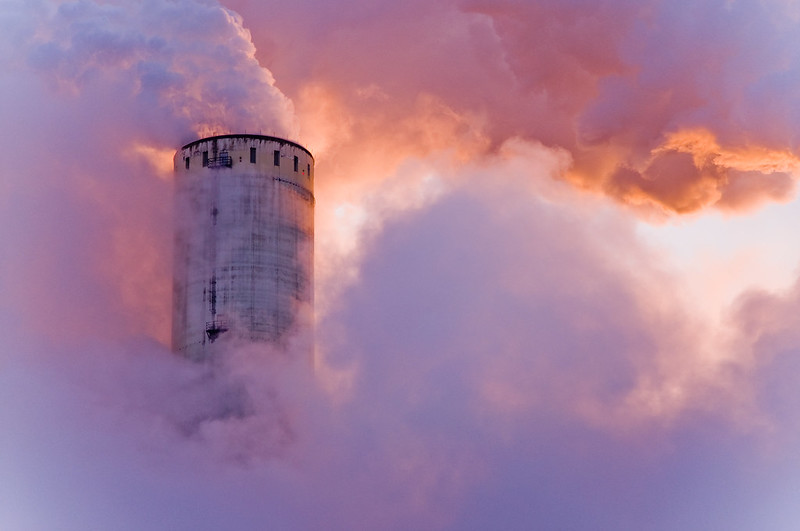ASPI suggests

The world
Global defence spending is on the rise, mostly due to the US and China, which both increased their budgets by 6.6% in 2019. The BBC explains the cause of the increase, namely, the challenges to the rules-based order like the demise of some arms-control treaties. Defense News reports European military budgets are being boosted due to widespread doubt about US President Donald Trump’s commitment to the region. This report by the International Institute for Strategic Studies defines the security landscape in Europe that has prompted the increase in defence spending, from the Russian annexation of Crimea to the challenges posed by a rising China. Finally, which nation has the highest defence expenditure per capita? The US? China? Saudi Arabia? Guess again. With annual defence spending of more than US$2,500 per person, Oman takes the crown. See Forbes for more.
This week Eric Campbell reported for the ABC that Germany has been managing the shift from coal to renewable energy without yet losing a single job. Campbell explains this transition has been occurring gradually since 2007, with support from the government and relevant industries. German Chancellor Angela Merkel has visited South Africa and, as the New York Times notes, renewable energy was a point of discussion as the country seeks to follow Germany’s example. However, Germany was criticised by Volkswagen’s chief executive as having a paradoxical approach to the issue in a recent Financial Times article. Herbert Diess says that’s shown by the country’s decision to approve a new coal-fired power plant despite its efforts to phase out coal by 2038. Worth reading is Robert Glasser’s Strategist piece on the cascading effects of climate change in Australia and the need for better disaster-preparedness.
The Guardian this week highlighted the difficult conditions faced by female migrants from South Asia in Gulf countries, where employers of domestic workers have legal control over their freedom of movement and ability to change jobs. Meanwhile, the New York Times outlines the history of one family’s migration to the US after facing various generations of persecution around the world. The article, which is worth reading in its entirety, presents a view that recent changes to US immigration and asylum policies run counter to the American value of freedom.
The Center for Strategic and International Studies argues that the international community should encourage Venezuela to hold a free and fair general election this year on top of its scheduled legislative election. The article highlights five requirements for effective international oversight of such an election. The economic struggles facing Venezuelans are significant, with The Guardian reporting parents are leaving their children to migrate to nearby countries in order to earn enough money to support their families. The Financial Times writes that the situation is adversely affecting neighbouring countries, as Colombia struggles to cope with an influx of more than 1.6 million Venezuelan migrants. The article says that the crisis could become a larger refugee emergency than the one in Syria.
Australia’s future submarines have been the subject of debate this week, with arguments suggesting their planned lead–acid batteries may soon be obsolete and that the project timeline really puts the ‘future’ in future submarines. Former Royal Navy rear admiral Chris Stanford backs the nuclear option, claiming the benefits of a nuclear-powered submarine far outweigh the cons. Defence Connect explores Stanford’s argument, claiming Australia needs to ‘remove the ego’ and be prepared to re-examine some of the decisions made. Naval News reports on the joint statement released by the Defence Department and Naval Group reaffirming their commitment to the French-designed subs.
Tech geek
In an article for Defense One, former Defense Intelligence Agency officer Patrick Collins outlines why the level of US defence spending is still sustainable, reminding readers that Department of Defense spending covers not only the military, but also veterans’ affairs and intelligence. While some of the candidates for the Democratic presidential nomination have called for a decrease in US defence spending, Collins explains why an increase is more likely.
In this War on the Rocks piece, Safi Bahcall argues that investing in new technologies won’t be enough to meet the threat posed by emerging technologies developed by China and Russia. Bahcall says the US needs to separate the adoption and creation of new technologies into two different areas of responsibility. It’s in this context that Bahcall calls for the creation of a unified future warfare command to support the US’s adoption of new technologies.
How do states determine which foreign tech investments will undermine national security? It’s been a hot topic in Australia, but also in the US where, according to Justin Sherman, the answer to this question is still not clear.
This week in history
This week in 1962, John Glenn became the first American astronaut to orbit the earth (and did so three times in five hours). Although he was preceded by Russia’s Yuri Gagarin, Glenn’s accomplishment provided the fuel behind President John F. Kennedy’s call to put an American on the moon by the end of that decade.
Multimedia
This ABC interactive article highlights the enormity of the destruction caused by Australia’s devastating bushfires through infrared and satellite imagery.
Sitting in a different hemisphere makes it difficult to picture what is happening in those regions of China most affected by coronavirus, but The Atlantic brings it to you in this photo series.
Pod Save the World this week discusses the worsening humanitarian crisis in Syria, the impact coronavirus is having on the global economy and much more. [1:29.26]
CSIS’s podcast, Babel, looks at US and China’s cooperation in the Middle East region in part 5 of its ‘China in the Middle East’ series. [20.28]
Events
Canberra, 25 February, 12.30–1.30 pm, Australian National University: ‘A different kind of weapon? Rethinking force, nonviolence, and the protection of civilians in violent conflict’. Register here.
Sydney, 25 February, 6–7.30 pm, Australian Institute of International Affairs: ‘The coming global upheaval over the policy and politics of climate change’. Register here.